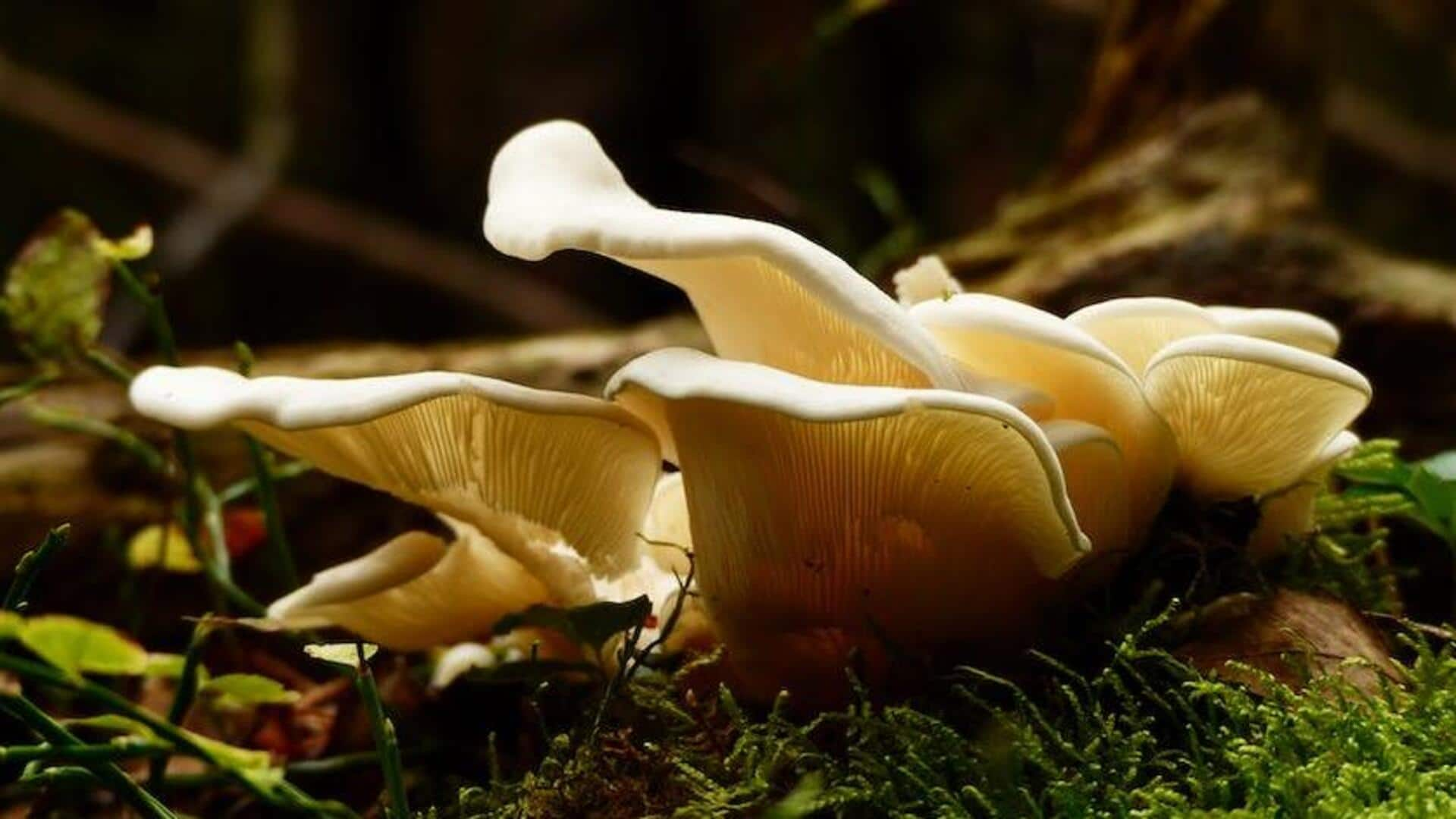
Harnessing the power of mushrooms for health and vitality
What's the story
In recent years, the Western world has witnessed a resurgence of interest in mushroom wellness, supported by scientific research. Notably, Cordyceps, as highlighted in the 2016 study 'Effect of Cordyceps sinensis on Exercise Performance in Healthy Older Subjects,' enhances endurance and energy levels. Ms. Richa Jaggi, co-founder of Awshad, shares with us the role of mushrooms in health and wellness.
Sleep
Role of mushrooms in improving sleep quality
"Mushrooms, especially when combined with CBD are gaining attention for their potential to improve sleep quality and combat insomnia," says Jaggi. These fungi offer several potential benefits, including stress reduction due to adaptogenic properties, immune support, anti-inflammatory effects, enhanced oxygen utilization, and nutritional value. "While research continues, incorporating mushrooms into your diet may indirectly contribute to better sleep and overall health," clarifies Jaggi.
Immunity
Contribution to boosting the immune system
Mushrooms are rich in beta-glucans, complex carbohydrates known for their immune-stimulating properties. "Beta-glucans can activate immune cells, such as macrophages and natural killer cells, helping the body better defend against infections and diseases," explains Jaggi. "Mushrooms contain antioxidants like selenium, vitamin C, and polyphenols which neutralize harmful free radicals in the body, reducing oxidative stress and inflammation, which can support overall well-being," she adds.
Benefits
Reduce stress and anxiety
"Some mushrooms, like reishi, have adaptogenic properties. They may help the body adapt to stress, reduce anxiety, and improve resilience, contributing to better physical and mental health," explains Jaggi. Certain mushrooms exhibit antimicrobial properties, helping to fight off bacterial and viral infections. Mushrooms are also a source of essential nutrients, including B vitamins, minerals, and fiber, which are crucial for maintaining overall health.
Medicinal properties
Difference between medicinal properties of wild mushrooms and cultivated ones
She notes, "Differences in the medicinal properties of wild and cultivated mushrooms stem from species variations, growing conditions, and environmental factors. Wild mushrooms may offer unique compounds depending on species and habitat, while cultivated ones provide consistency but potentially fewer diverse compounds. However, wild mushrooms pose higher contamination and toxicity risks." Consider species, safety, and accessibility, with expert consultation when choosing, he recommended.
Active compounds
Bioactive compounds found in medicinal mushrooms
Jaggi emphasizes medicinal mushrooms' bioactive compounds for inflammation and pain relief. Beta-glucans, complex carbohydrates present in varieties like reishi and maitake, stimulate the immune system and modulate inflammation. Reishi mushrooms are abundant in triterpenes like ganoderic acids, renowned for their anti-inflammatory and histamine-release-inhibiting properties. Certain mushrooms contain lectins with anti-inflammatory effects, impeding pro-inflammatory cytokines and thereby contributing to mushrooms' therapeutic potential.
Bioactive compounds
Other notable bioactive compounds
Polysaccharides in turkey tail mushrooms can reduce inflammation and regulate the immune system. Shiitake mushrooms contain ergosterol, convertible to anti-inflammatory vitamin D. Additionally, mushrooms provide antioxidants such as selenium, vitamin C, and polyphenols, countering oxidative stress and inflammation. "These compounds collectively alleviate inflammation and pain, but their effects can vary between species and individuals. Consulting a doctor for dosage guidance is advisable," recommends Jaggi.